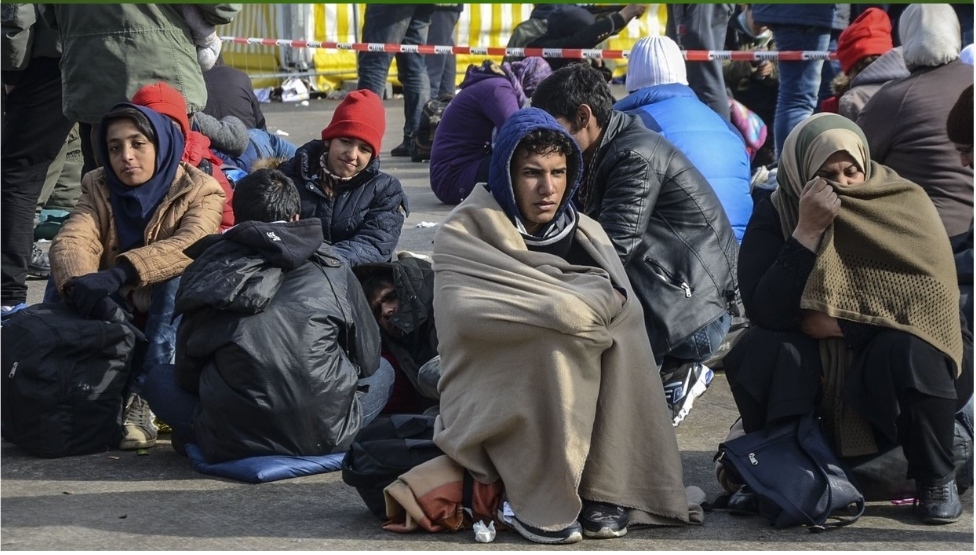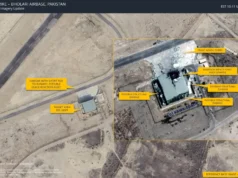Austria faces huge crime surge linked to foreign nationals

By M A Hossain
Austria is grappling with a growing internal security dilemma as newly released police statistics indicate a sharp rise in criminal offenses involving foreign nationals.
The data, made public by Austria’s Interior Ministry on April 14, 2025, reveals that nearly half of all crimes recorded in 2024 involved non-Austrian suspects-a trend that is prompting both national soul-searching and a hard pivot in immigration policy.
In 2024, Austria registered more than 500,000 criminal offenses, marking a 1.2% increase from the previous year. Of the 336,000 suspects identified, an alarming 46.8% were foreign nationals-roughly 157,000 individuals. Among them, Romanians, Germans, and Syrians represented the largest groups.
The most concerning spike, however, came from Syrians: over 11,000 Syrian nationals were named as suspects in criminal investigations, a figure that has surged by 30% compared to 2023.
These numbers are particularly stark when set against Austria’s demographic backdrop. While foreign nationals constitute about 18.5% of Austria’s population, their disproportionate representation in criminal statistics has become a lightning rod for both public concern and political maneuvering.
The data also shines a spotlight on the troubling rise in youth crime, particularly among minors aged 10 to 14. Since 2020, the number of reported offenses in this age bracket has nearly doubled.
Nearly half-48%-of the young suspects were foreign nationals. The number of Syrian youths involved in criminal cases rose by 35% in just a single year, underscoring what authorities see as a failure in integration and social cohesion.
The Austrian government has responded with a package of proposed measures aimed at curbing juvenile delinquency.
These include mandatory psychological and social counseling for minors involved in criminal activity, the use of multidisciplinary “case conferences” for repeat offenders, and the creation of specialized residential communities.
These institutions would place minors under court-supervised temporary stays, offering intensive care and behavioral interventions.
While some child welfare advocates warn that punitive measures could stigmatize vulnerable youth further, the government insists that early intervention is essential to preventing deeper criminal entrenchment.
Austria is home to approximately 100,000 Syrian refugees, many of whom arrived during the peak of the European migration crisis. However, the recent uptick in crime, particularly following the highly publicized February stabbing attack in Vienna, has intensified calls for a reassessment of the country’s asylum policies.
In that incident, a 14-year-old boy was killed and five others injured when a 23-year-old Syrian asylum seeker launched what authorities described as an “Islamist attack.” Officials say the attacker was radicalized rapidly online, and the tragedy has served as a potent catalyst for the government’s tougher stance on migration.
In a significant policy reversal, Austria has paused pending asylum applications from Syrian nationals in light of the December 2024 ouster of former Syrian President Bashar al-Assad.
The change in Syria’s political landscape is prompting EU countries to reassess whether parts of the country may now be considered “safe” for return.
In the meantime, Austria has frozen family reunification programs and issued more than 2,400 notices to revoke refugee status.Austria is not alone in facing these challenges.
Neighboring Germany is experiencing similar difficulties, with 41% of suspects in 2023 being non-German nationals-despite foreigners making up only around 15% of the population.
German policymakers, too, are caught between expanding integration efforts and mounting public pressure to deport foreign nationals involved in crime.
Both Austria and Germany are part of a broader European trend in which a growing number of citizens view migration as being poorly managed and linked to declining public safety.
This sentiment is fueling support for anti-immigration parties and movements, particularly in rural and suburban areas where integration programs are limited or overstretched.
The intersection of crime, migration, and integration is becoming one of the defining political issues in Austria ahead of its next parliamentary elections.
The far-right Freedom Party (FPÖ), which has long campaigned on a platform of closed borders and cultural preservation, has seen a surge in support amid growing anxieties about public safety and social cohesion.
The Austrian government, led by Chancellor Karl Nehammer of the center-right People’s Party (ÖVP), is attempting to strike a delicate balance.
While maintaining Austria’s commitment to humanitarian obligations, the government is increasingly signaling that criminal behavior among foreign nationals-particularly those granted asylum-will not be tolerated.
“There must be consequences for those who abuse the protection and support Austria offers,” Nehammer said in a recent address. “Our asylum system cannot become a shelter for those who endanger our values and our safety.”
Experts warn, however, that simply tightening immigration policies without addressing the root causes of social alienation may prove insufficient.
Many young offenders come from marginalized communities, often living in overcrowded housing, with limited access to quality education or employment opportunities.
Without a serious investment in integration, Austria risks perpetuating cycles of poverty and delinquency that fuel both crime and extremism.
Human rights organizations have urged the government to tread carefully, cautioning that blanket policy shifts-such as halting asylum applications or revoking refugee status-could undermine Austria’s international obligations and worsen the plight of genuine refugees.
“There’s a real danger that Austria is conflating individual criminal acts with entire communities,” said Martina Meissner of the Vienna-based NGO Refugee Rights Watch. “We need targeted solutions, not collective punishment.”
Austria now stands at a critical juncture. The recent crime statistics have peeled back the layers on a complex and uncomfortable reality: the country’s struggle to integrate a rapidly growing and diverse population within a social and legal framework that many now see as ill-equipped for the task.
Whether Austria can recalibrate its immigration policies while preserving its humanitarian ethos will not only define the immediate future of its domestic politics-it may also serve as a bellwether for the broader European debate on migration, security, and identity in the years to come.




